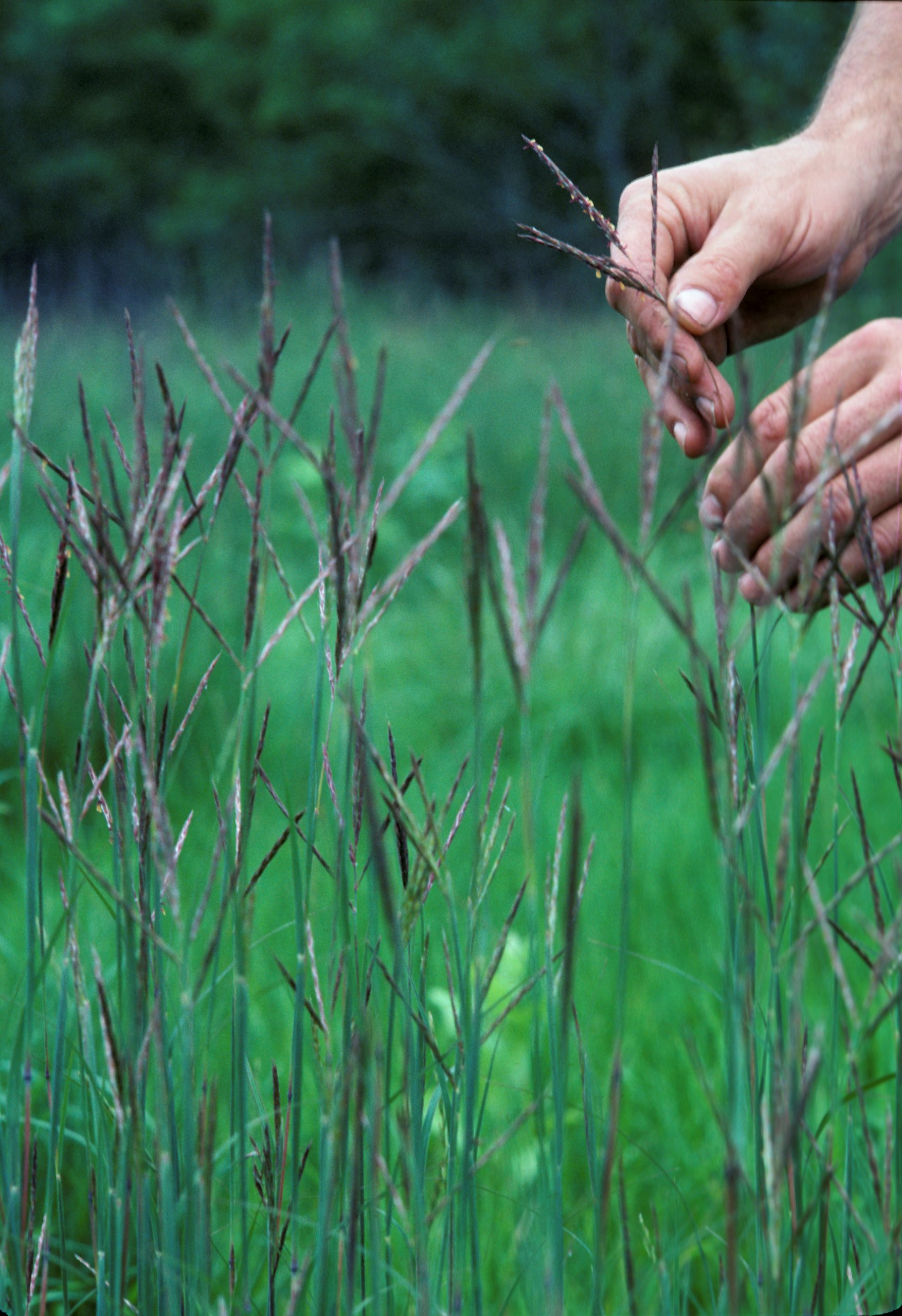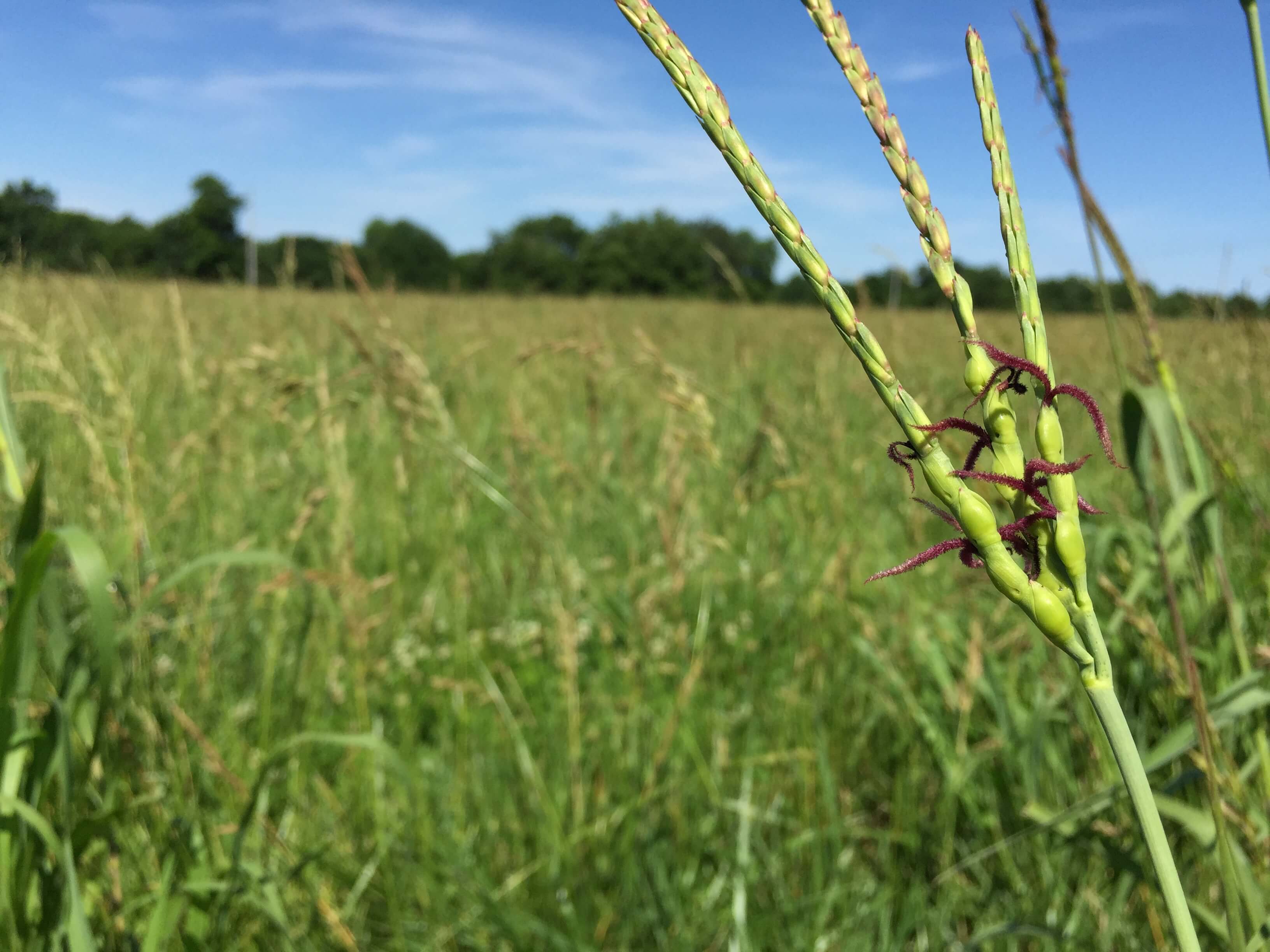Please consider planting or replanting your pastures, or a portion of your pasture, with native to GA grass species. Georgia’s native grasses are mostly warm season and require a little more management and education than the cool season grasses found in most of our pastures – fescue, bermuda, and rye – but the benefits to your horses and the local ecosystem are undeniable.

Native grasses are better food for the whole ecosystem than a single grass species pasture. When you plant native grasses, then you feed the insects, birds, and mammals. Some birds eat insects as well. Planting even a quarter of your pasture with natives will have a drastic effect on the health of the local ecosystem.
Native grasses have a deeper root system. Fescue root depth is around 2 – 3 feet deep while native grasses often reach 7 to 8 feet of depth. Root depth is a critical component of root health. Deep roots aerate the soil, improving the amount of water that the soil can hold. When it rains, a pasture with native species will hold that water longer.
Watch pastures and roadsides near your home – notice that during a drought, the native species will stay green significantly longer than your single species pastures.
Native grass species evolved to thrive in our climate. As a result, they are more drought tolerant than introduced species.

In their native environment, horses eat a wide variety of plant species – it helps them capture all the micronutrients that they need to thrive. Plus who wants to eat the same thing ALL DAY EVERY DAY.
According to my fabulous County Extension agent (more on them below!), our best options for native grasses in AAHC’s area are Big Bluestem, Eastern Gamagrass, and Indian Grass. Other options are giant cane, bent-awn plumegrass, beaked panicum, knotgrass, and common reed.
Sources and Further Reading
American Forage and Grassland Council – Native Forage Resource Center
University of Arkansas Extension article – Forages for Horse Grazing
Establishing Native Grass Forages in the Southeast – collaborative work of Keyser, Hancock, Marks, and Dillard from Auburn, U of Tennessee, and UGA
Roundstone Native Seed is a great source for seeds if you are looking to replant: https://roundstoneseed.com
Resources for Planting Natives In Your Pasture

The Native Habitat Project
I have to thank Kyle Lybarger of The Native Habitat Project for inspiring this post. Kyle and his team are based out of Alabama and offer consulting services if you want to talk to an expert. His social media posts are incredibly informative – follow the NH project here on social media.
If you’re a podcast person – or even if you aren’t – Check out their recent 2 part-er Grazing Gone Native – they covered the hows and whys, best practices, management, and much more. I highly recommend a listen to the 2 episodes as they cover ways to transition your pastures (or a portion of your pasture if you are not ready to go whole hog) and how to graze the pastures to manage them for health.
Support the project monetarily via their Patreon here.
Your County’s UGA Extension Agent
UGA Extension offices translate the science of everyday living for farmers, families, and communities to foster a healthy and prosperous Georgia. Each county has an extension agent that offers services like workshops, classes, consultations, certifications, camps, and educator resources. Your county agent can help with hay, soil, and water testing. They have access to immense scientific research databases and if they don’t know the answer, they can get you the answers you need.
My agent here in Oconee is Carsen Dean. She was the first person I reached out to when I had questions about which native grasses were first of all SAFE and secondly – my horses would ENJOY eating. Carsen was quick to respond and I could tell that she actually spent a fair amount of time digging and understanding the material because her email response was well organized and truly helped me as I work toward a plan to (hopefully) transition a pasture I help manage to native grasses. As I continue to learn and move through that process, I hope to continue to post on AAHC’s website. Sign up for the newsletter and follow us on social media to follow our journey. Amanda
Find your County’s UGA Extension Agent here – NE GA District.